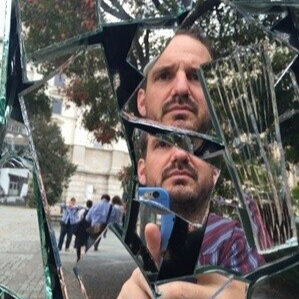Re-Imagining Evaluation: How To Get Excited About Evaluating Your Strategies
Re-Imagining Evaluation: How to Get Excited About Evaluating Your Strategies
Blog post written by: Eric Craven
At the Atwater Library and Computer Centre, we have worked with so many awesome collaborators who are deeply engaged with work that addresses rape culture on campus. Through opportunities provided by several initiatives funded by Women and Gender Equality Canada on themes such as Gender-based Cyberviolence and Campus-based Rape Culture, we have participated in developing all manner of strategies to address rape culture on campus. Over the past eight years, from grassroots, participant-led initiatives to strategies aimed at institutional change, the folks we have had the privilege of collaborating with do great work. We have seen so many effective, innovative and creative strategies addressing sexual violence and rape culture. However, rarely was there a plan to assess their impact on campus.
We usually have opinions or hunches about the effectiveness of our strategies or have received positive or negative feedback from participants, but often there aren’t the resources, or desire to gather the data required to support these observations or impressions.
There came a point where we started to think differently about how evaluation can play a role in our work, and then things got exciting. Frequently, evaluation is an after-thought or something we dread tackling at the end of an initiative, but it doesn’t have to be. It can be a creative and empowering aspect of a project that reflects the overall objectives. We began asking, what would it be like if we re-imagined how we think about evaluation, not as something we have to do at the end of the project, but rather as something that helps us develop and strengthen our work and is incorporated throughout? Re-envisioning evaluation, from a scary test, that we pass or fail to a tool that helps and supports us achieve our goals?
We started thinking about how evaluation could work for strategies that address rape culture on campus and started making a toolkit based on our experiences working with our collaborators and our conversations with folks engaged in this work.
Our toolkit tackles many of the basics and key considerations for evaluation work and employs story-based ways of getting the ideas across as well as a few case studies.
We made specific sections on topics we felt needed attention including:
How to make evaluation trauma-informed.
How to use arts-based evaluation
How to make sure that your evaluation is participant-led
We have made a case, for why evaluation has the potential to help us advocate for effective and innovative work as well as how evaluation can help share our promising and best practices.
We are very happy to debut this toolkit via the Courage to Act newsletter and Innovation Hub:
If you would like to connect regarding this toolkit, please feel free to contact Eric Craven at eric@atwaterlibrary.ca
To reference this document, please use the following citation:
Dixon, S., Jones, C., Craven, E. & Crooks, H. R., (2021). Approaches for evaluating strategies that address rape culture: Toolkit with key considerations, and discussion. Addressing Rape Culture on Campus for the Women and Gender Equality Canada Project funded by FEGC/WAGE.
__________
Suggested Citation: Craven, Eric. (2021, March). Re-imagining Evaluation: How to get Excited about Evaluating your Strategies. Courage to Act. www.couragetoact.ca/blog/atwater-toolkit



